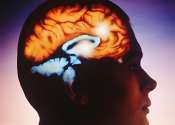Late bedtimes and not enough sleep can harm developing brains—and poorer kids are more at risk, say neuroscientists
Shorter sleep and later bedtimes are linked to potentially harmful functional changes to parts of the brain important for coping with stress and controlling negative emotions, our recently published research found. And children ...
Jul 18, 2024
0
23









